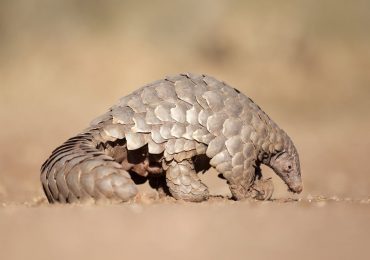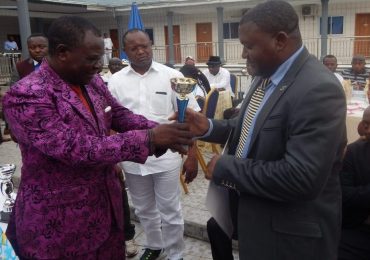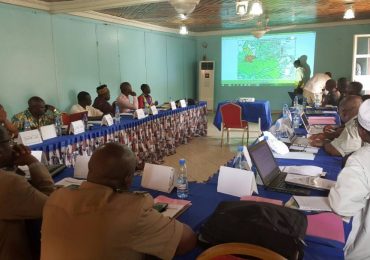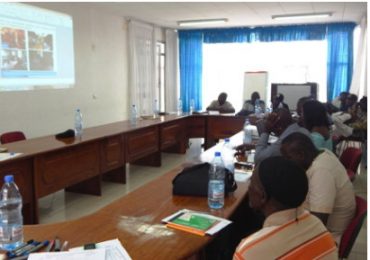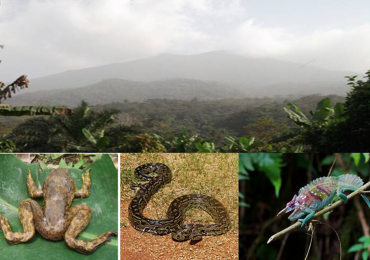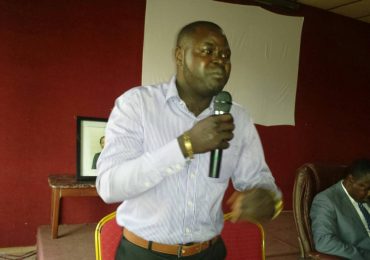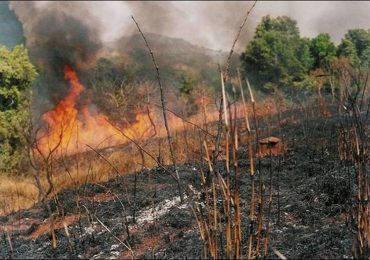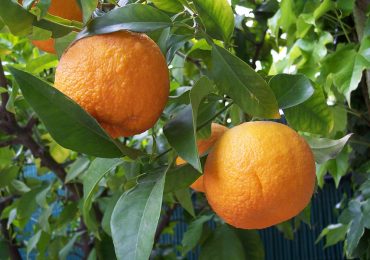The violent storm of a war can ravage human lives and property. And most often than not, attention is focused exclusively on the suffering of the people affected by war. There is always lots of gunfire, plenty of blood spilled and dead people. The press concentrates on the humanitarian crisis aspect of the war; lack of food, shelter, disease outbreak, social disruption. Yet, the land on which the war is fought rarely receives media attention; much less, government concern.
By Azore Opio
Beyond the toll on human life, destruction of property and immense suffering, war impacts the natural environment and wildlife, “ultimately with dire consequences for wildlife conservation, biodiversity, and for the livelihoods of human communities that depend on these natural resources,” says Jenny Griffin writing in Our Endangered World.
The Lake Chad Basin region, where Boko Haram has driven over 40,000 Nigerians and Cameroonians along with their animals, is a landlocked area with hostile climatic conditions. Faced with this huge influx of refugees, the government of Cameroon allocated a temporary refugee camp at a school in Kolofata. The environmental damage that could be inflicted on the Lake Chad Basin cannot be ruled out. The masses of refugees living in provisional camps could speed up erosion and deforestation (harvesting of trees for firewood, and construction of shelter). This habitat destruction easily constitutes a threat to vulnerable species.
Lake Chad, from which the basin derives its name, provides water to more than 20 million people living in the four countries that surround it: Cameroon, Chad, Nigeria and Niger). It is home to more than 44 species of algae, large areas of swamp and reed beds and many floating islands; a wide variety of wildlife including hippopotamus, crocodile, and large communities of migrating birds including wintering ducks, waterfowl and shore birds; two near-endemic birds River Prinia and the Rusty Lark. The diminishing lake is threatening nesting sites of the Black Crowned Crane and, of course, fish.
Refugees often have to turn to Mother Nature for survival. Consequently, as the Boko Haram-driven refugees in the Lake Chad Basin region cannot grow food crops during hostilities, they would have to resort to wild plant foods and bush meat. Alongside the legitimate needs of the refugees, the breakdown of law and order would encourage illegal exploitation of natural resources and amplify illicit trade in poached animal parts like ivory and horns, sometimes to fund Boko Haram’s terrorist operations.
On February 5-7 2015, experts of the four Member States of the Lake Chad Basin Commission – LCBC (Cameroon, Chad, Niger and Nigeria) together with other experts from the African Union (AU) Commission, the Economic Community of West African States (ECOWAS), the Economic Community of Central African States (ECCAS), the United Nations (UN), the European Union (EU) and the Organisation of Islamic Cooperation (OIC) met to conclude the operational documents of the Multinational Joint Task Force (MNJTF) to fight against Boko Haram. Cameroon’s Minister Delegate at the Presidency in charge of Defence, Edgard Alain Mebe Ngo’o, opened the meeting.
According to a press release, in the final draft concept of operation (CONOPS), the experts reiterated the mandate of the MNJTF as follows:
(i) create a safe and secure environment in the areas affected by the activities of Boko Haram and other terrorist groups, in order to significantly reduce violence against civilians and other abuses, including sexual- and gender-based violence, in full compliance with international law, including international humanitarian law and the UN Human Rights Due Diligence Policy (HRDDP);
(ii) facilitate the implementation of overall stabilization programmes by the LCBC Member States and Benin in the affected areas, including the full restoration of state authority and the return of IDPs and refugees; and
(iii) facilitate, within the limit of its capabilities, humanitarian operations and the delivery of assistance to the affected populations.
The protection of human being runs throughout the entire CONOPS document, but not the environment where the Boko Haram war is being fought. Then again, the violence and atrocities meted out by the terrorist Islamic group in the north of Cameroon has forced nationals to reassert the wish to live in a democracy, free from the threat to senseless mass killing of innocent people. In very spontaneous public demonstrations, deeply choreographed by political support, every peace-minded Cameroonian has displayed public sentiment against Boko Haram. Crowds of Cameroonians have stretched out not only their bodies in protest demonstrations against Boko Haram, but also dipped their hands into their pockets and have so far fund-raised over 2 billion franc cfa nationwide to support the armed forces in the fight against the Islamist terrorist group. The main opposition party, the Social Democratic Front, (SDF) chipped in over 13 million, which was handed to Northwest Governor, Lele L’Afrique, on May 26 as the party celebrated its Silver jubilee. Yet, not a trickle of these collections seems to be assigned to the protection of the Lake Chad Basin environment.



